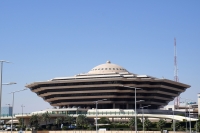
Electronic Authorization in the Kingdom of Saudi Arabia is a service introduced by the Ministry of Interior in 2018. It is also offered by other government entities in Saudi Arabia, replacing paper-based authorization. This service allows a citizen to issue an electronic authorization for another citizen to act on their behalf in a civil procedure. Electronic authorization is a service available to both citizens and residents, but it is restricted to authorizing only Saudi citizens. To use elec...

Intellectual Property Protection in the Kingdom of Saudi Arabia encompasses regulatory efforts to oversee procedures and activities related to various domains of intellectual property in the Kingdom, including patents, industrial designs, integrated circuits, copyrights, trademarks, and plant varieties. In December 2022, the National Intellectual Property Strategy was introduced as an enabler supporting the realization of the objectives of Saudi Vision 2030 . Beginnings of the Intellectual Prop...
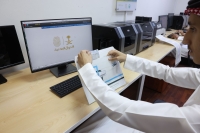
The Ministerial Agency of Civil Affairs is one of the sectors under the Ministry of Interior in the Kingdom of Saudi Arabia. It is responsible for registering citizens and residents, documenting various civil events, and providing related services to individuals and relevant entities using appropriate and available means. The agency traces its origins back to the era of the Founding King Abdulaziz Bin Abdulrahman Al Saud in 1924, when the General Directorate of Police was established in Makkah ...

The Jeddah Regional Convention for the Conservation of the Red Sea and Gulf of Aden Environment is a convention binding the governments of the member-states to leverage their resources, powers, and political influence in favor of addressing and preserving the coastal and marine environments of the Red Sea and Gulf of Aden. The convention was ratified by seven countries: the Kingdom of Saudi Arabia, the Hashemite Kingdom of Jordan, the Arab Republic of Egypt, the Republic of Sudan, the Republic ...
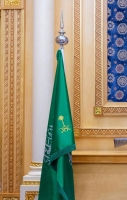
The King's flag is flown in the Kingdom of Saudi Arabia in the King's residence and at the events he attends on a mast located to the left, behind his chair (at the King's right). The King's flag is a special flag whose characteristics match the national flag. The state emblem, two crossed swords underneath a palm tree, is embroidered with golden silk threads in the lower corner of the flag, at an adjacent location to the mast. ...
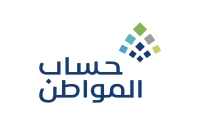
The Citizen Account is a program dedicated to low-and middle-income citizens of the Kingdom of Saudi Arabia . It was launched in 2017 to provide specific groups with financial support to alleviate the financial burdens that might result from economic reforms. The program offers its service by redirecting government subsidies in favor of beneficiaries and fostering rational consumption. Subsidies offered cover any correction of oil and electricity tariffs and the application of taxes on foodstuf...
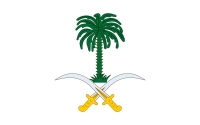
The emblem of the Kingdom of Saudi Arabia consists of two crossed swords with a palm tree positioned in the center of the intersecting space they form. The swords symbolize strength, protection, and sacrifice, while the palm tree signifies growth, prosperity, and abundance. In 2018, a Supreme Order was issued prohibiting the commercial use of the Kingdom's emblem, 'the two crossed swords and the palm tree,' in business transactions. ...
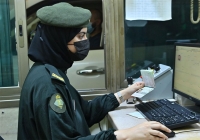
Yes, female conscription exists in the Kingdom of Saudi Arabia . It falls within the Kingdom's women empowerment efforts. The Kingdom enabled women's participation in several security tasks executed by the General Security, the Two Holy Mosques Security Special Forces, the General Department of Criminal Evidence, and the Police. It also initiated female military recruitment. In this respect, the Ministry of Defense expanded the female military scope upon launching unified application ...

The Supreme Space Council is a body tasked with leading, developing, and fostering the emerging space sector activities in the Kingdom of Saudi Arabia . It was established by a Council of Ministers ' resolution in 2022 and is chaired by Crown Prince and Prime Minister His Royal Highness Prince Mohammed Bin Salman Bin Abdulaziz Al Saud. Responsibilities and duties of the council include: Developing and regulating the roles of various entities within the space sector, restructuring their tas...
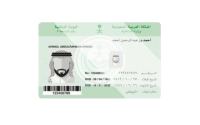
1984 The first generation of the civil status card was issued in Polaroid format. 2004 The second generation of the civil status card was issued. It was titled the 'National Identity Card.' 2008 The second generation of the National Identity Card was enhanced by using laser engraving techniques. 2017 The third generation of the National Identity Card was issued in both Arabic and English. 2020 The first digital identity card, similar to the National Identity Card, was issued via Abshe...
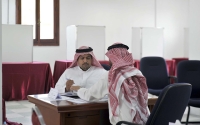
Elections in the Kingdom of Saudi Arabia represent a regulatory practice within civil institutions that the Kingdom experienced even before its unification by the Founding King Abdulaziz Bin Abdulrahman Al Saud nearly a century ago. This began with citizens participating in the elections of the national Shura Council in Makkah al-Mukarramah . There are various types of elections in the Kingdom, including municipal council elections, elections for chambers of commerce and industry, and elections...

The National Guide for Asset and Facilities Management is a comprehensive national guideline that supports the quality, sustainability, and efficiency of asset and facility management in government entities in the Kingdom of Saudi Arabia. The guide was launched by the Expenditure and Project Efficiency Authority (EXPRO) on June 12, 2022, in cooperation with experienced national cadres from various government entities, in accordance with local and global practices. Objectives of the National Gui...